The EU is ready to experiment with unconditional universal income. Here are the main problems

In a recent interview in Pandora's Box , I was asked about unconditional universal income, a measure that the EU seems ready to experiment in Wales.
Given that a minority of comments evenly distributed between those who had understood the exact opposite of what was expressed in the interview and those who attributed to me concepts that I had not expressed, a further interview was useful to clarify the critical points of such a measure .
Here they are in synthesis in the form of a response to the criticisms received.
What is the unconditional universal income (RUI) designed by the EU?
The universal income conceived by the EU is based on a collection of signatures that took place within the European community, therefore it is a popular initiative, it would be given to everyone regardless of income and employment level, cultural or social class and even without having minimum requirements .
According to the experiment underway in Wales, the share allocated to each of the adult Europeans would be € 1,600 / € 1,700 per month.
Multiply it by about 300 million citizens, removing the minors and then tell me by how many zeros the number that pops up is followed.
This clears the field of comparisons with examples of previous experiments.
In fact, the unconditional universal income should not be confused with the various forms of social security such as social or family allowances. It should not be confused with forms of subsidy such as unemployment checks or bonuses or citizenship income.
Let's just think about how it would be useful during this period to cope with the expensive bills also for companies, in the absence of tools such as the old escalator, abolished in the 80s, which allowed salaries to be re-adjusted to the trend of inflation.
In any case, an idea of this kind implies some critical issues on which we must reflect instead of thinking that they will resolve themselves by the hand of the savior of the current homeland.
The guaranteed minimum income – just said to simplify as much as possible – is advocated by both socialists and liberalists and capitalists of all times. The point is not to establish whose idea the idea is, but what use you want to make of it.
1 Automation is destroying work. Whoever says otherwise lives in the metaverse
Where a robot, a bot or an algorithm destroys jobs it is evident that it has created jobs among the engineers and maintainers of the same.
I talked about aggregate data, that is, overall. It is a fact that new technologies are creating new jobs.
For example, a new form of evolution of work lies in the ever greater cooperation between machine and man. It is the typical example of the co-bot, that is a robot that works side by side with the human operator. This form of semi automation is given as one of the most used in the future
The problem is that there is a middle world that cannot catch the train of progress because in an age group (plus many other factors) that prevents it.
However, jobs disappear and wages are stuck in 1990 for various reasons, the main one being globalization and the removal of barriers to international financial flows (ie the free movement of capital).
Now tell me, is it the robots' fault that our wages haven't grown since 1990?
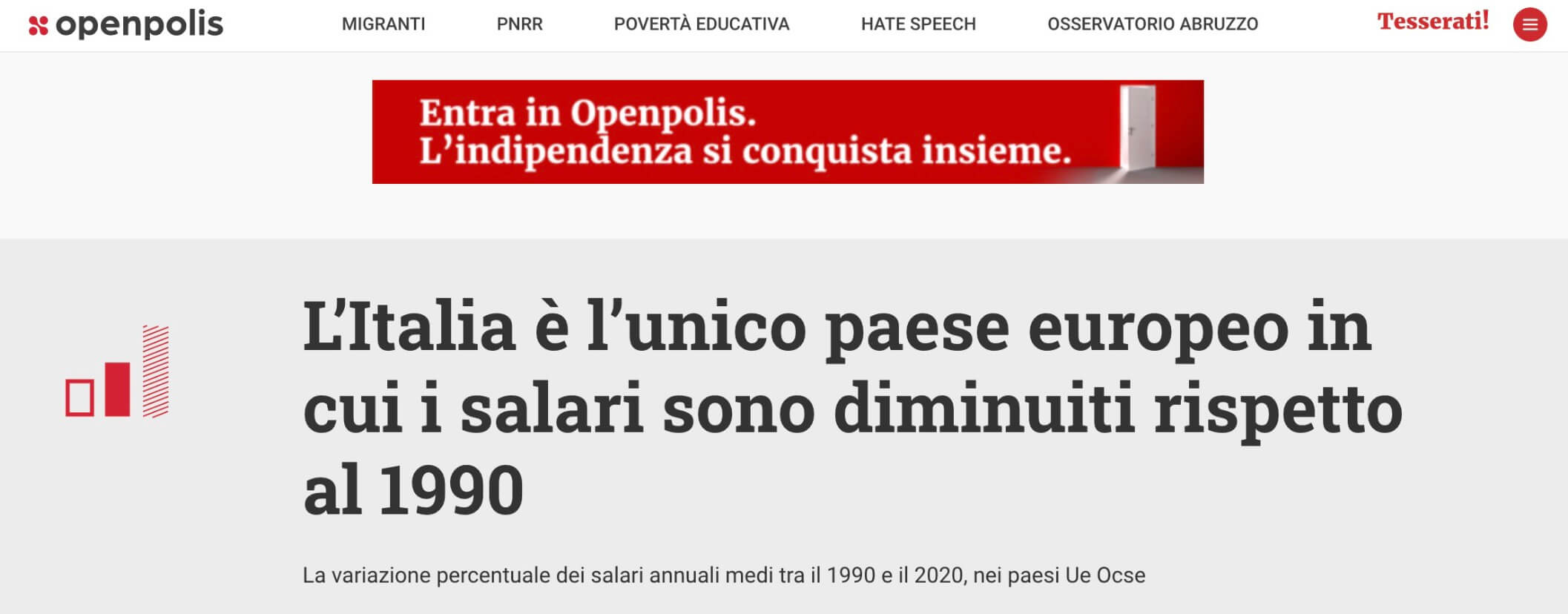
Why have our wages stopped for 30 years and we lose our jobs?
With the end of the Dollar standard in 1971, globalization began, as the US is looking for new energy resources and the opening of new global markets.
In reality, the fateful date on which the beginning of globalization is established is November 9, 1989 when the Berlin wall collapses (which is a bit of a watershed date like 1492 to establish the end of the Middle Ages).
Within a few years the Soviet Union will also collapse, the Cold War ends and Europe begins to expand to the East.
Subsequently, China enters the WTO, that is, within the free market area and capital is liberalized.
In recent years, relocations have shifted from Romania to China, in the hunt for ever lower cost products and ever greater profit margins.
As it happens, it is a fact that the incomes of Italians have stopped in 1990.
Sweets, the habit of buying on the internet, going to try on shoes in the store and then buying them on Zalando and Amazon burns many more jobs than robots, automatic checkouts in supermarkets, automatic responders, do. etc..
It is we, with our consumerist habits, who are eliminating jobs.
It is now a fact that capitalists have always, since before the industrial revolution, aimed to pay labor equally and above all as little as possible, for a simple reason: to maximize profits. And so we have to ask ourselves what are the reasons for RUI today that Bezos has created a regime of semi-slavery during working hours for employees who are timed even when they go to the toilet.
When I say that automation creates jobs it doesn't necessarily mean creating more; it means the world is changing like when computers took the place of typewriters and factories took the place of fields in value creation.
The state of the art – and not in the metaverse – is expressed in this newspaper headline:

2 – Why would it be right that I was forbidden to save part of my unconditional universal income?
First of all, this is not just my opinion, but how the universal unconditional income project was set up by the EU, so again it's not my opinion that counts, but the facts and the facts have a harder head than any opinion.
Each month, in fact, each recipient would have the account of his universal income given by the EU cleared and would have his starting nest egg as at the beginning of each month; the hypothesis speaks of € 1,700 per month which are reset to zero every month and start again.
So if I give you the money you need every month, what do you need to save it for?
There are at least three good reasons why this should happen:
A) if you do not use all the credit that is given to you, it means that you do not need it;
B) considering that your spending serves to create income for others, when you do not spend everything it means that you are making the tool inefficient and therefore you are creating under-employment – that is, someone is not working enough because you are keeping the currency NECESSARY to create the work set by the objectives;
C) if this happens it means that there is someone around who does not work (i.e. does not produce enough) and therefore will be replaced by a more efficient machine and you will add a new unemployed person (who would like to work and would have a job) to the list of assisted citizens.
So Rover is against saving?
Absolutely no.
Savings are a fundamental resource on which the wealth of Italians has been built (and public debt, which if used well generates well-being for all).
Savings from work are used to prevent periods when there is no work and to make life investments in oneself and in children.
But here we are talking about money given away without doing anything.
So tell me: do you want free money – without doing anything all day – without giving anything back to society and do you want to keep it all to yourself?
3 – It is not right that the expenditure of the unconditional universal income be monitored
Why was Berlusconi's social card, what was it if not a way to track expenses? And what was the card presented by Di Maio and Conte instead?
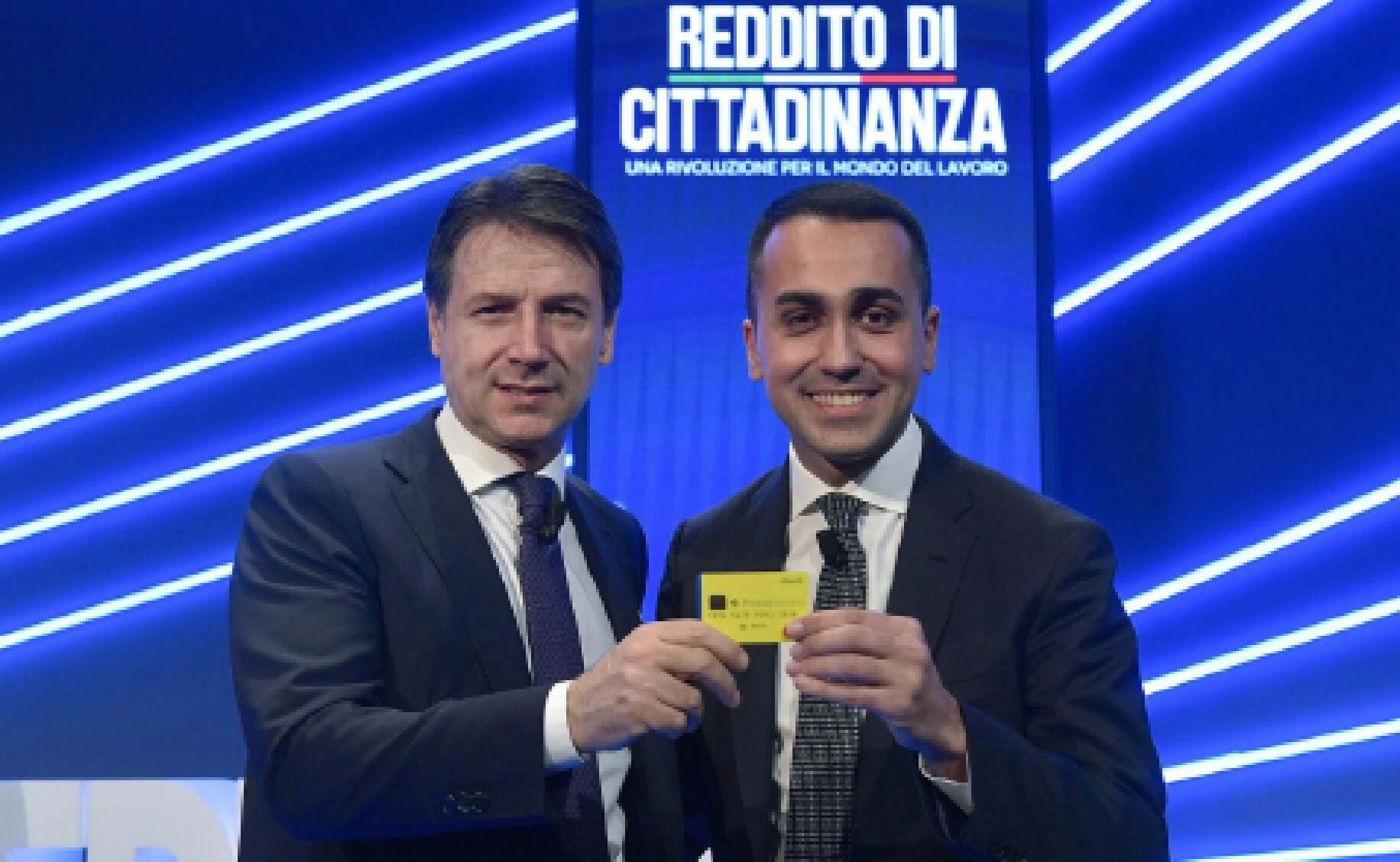
Universal income is meant to lift people out of poverty, but at the same time it must create incomes for those who work.
It is clear that in order to be sustainable, the system must be able to create employment and by introducing this term I am talking about activities that are not just work.
If it is spent to create income in China or to enrich Bezos, what did I create it to do?
Then, here too it is necessary to look at the facts; it is evident that the credit on the current account would be electronically, not the box with the cash money sent home; ergo it is clear that this would be the golden opportunity FOR THEM to introduce the digital euro.
IT IS A HYPOTHESIS TO WHICH I AM ABSOLUTELY AGAINST.
Let's not forget that there is an ongoing race to control money by central banks with respect to cryptocurrencies and that as it progresses, central banks will tend to replace credit institutions, starting with small banks such as rural coffers.
This is a form of centralization I AM AGAINST.
4 – The DRC has lifted hundreds of thousands of people out of poverty
Eh, thank you … Graziella …
If I give you a check every month it is obvious that you are less poor …
But the point is: do we just want to remove poverty or create value in society? Because here is the difference between wanting to improve the world and get busy and stay on the couch and make a living – ALWAYS ALLOWED YOU FIND WHO WILL ALLOW IT.
It must be established whether universal income can create inflation (which by definition eats income) or whether it must be a form of productive investment.
The first reports on the effect of the DRC established that 7 billion was spent on the DRC and the GDP grew by 7 billion. BUT GO, but it's a miracle !!!
Well so I'm capable too.
It is necessary to establish a milestone of the macro economy: the income of one or more others is generated with the expenditure of one subject. Translated into Italian it means that with money you buy the work (ie value) produced by someone else. That the state buys GDP. If you are not buying someone's work, it means that you are buying something else: their vote.
The fiscal multiplier
So if with 7 billion you have created only 7 billion of GDP, it means that you have only poured money into the economy, but you have not created value in it. Has the DRC created wealth? To establish it, beyond any opinion, there is a value that measures its effectiveness; it's called, TAX MULTIPLIER.
This fact, the existence of which is disputed by many economists, has even been recognized by the IMF.
It measures the effectiveness of spending and establishes that for every euro spent, a higher value is generated. This parameter indicates that for each euro spent, an average of 1.5 euro more is generated in value.
To explain how the mass line works we open the book of easy explained economics , where we will find even more comprehensive explanations than those set out in these two pages.
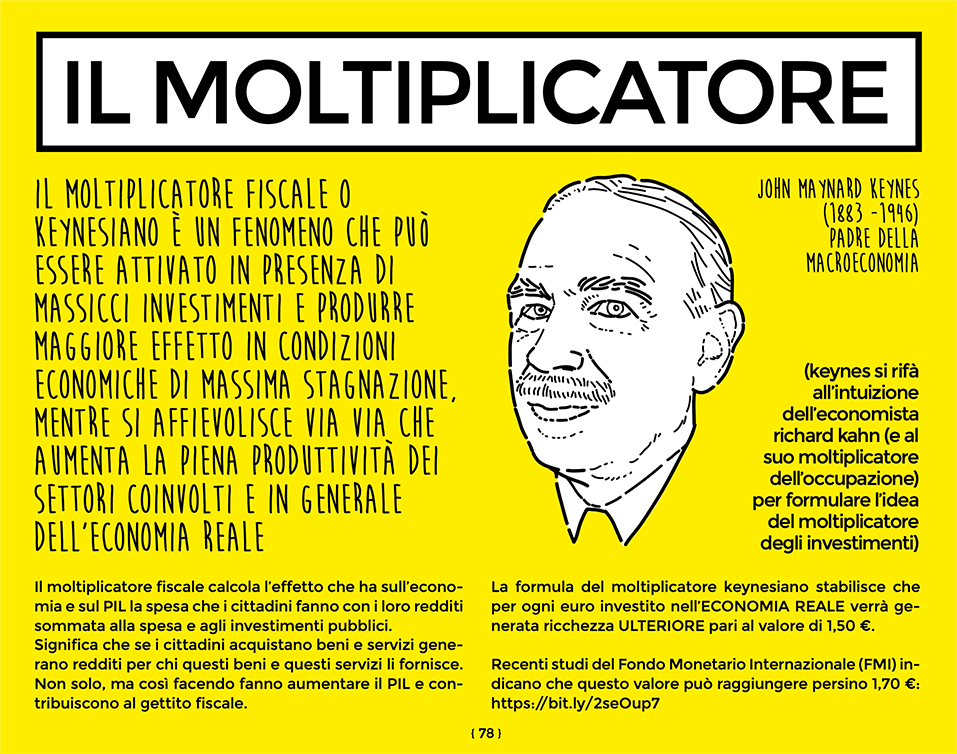
the fiscal multiplier explained in the easy explained economics book
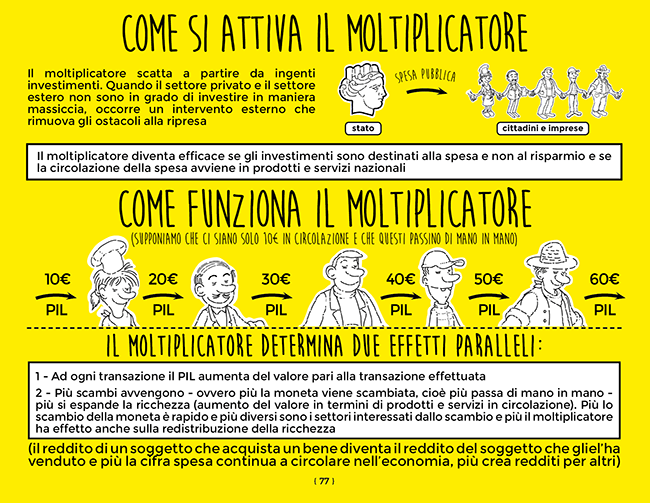
how the fiscal multiplier works in summary explained in the easy explained economics book
So if I have entered 7 into the economy and what I find at the end of the cycle carried out by this expenditure is simply a + 7, it means that I have generated unproductive spending and that the currency has not circulated enough.
FIND OUT HOW EASY IT IS TO KNOW THE ECONOMY
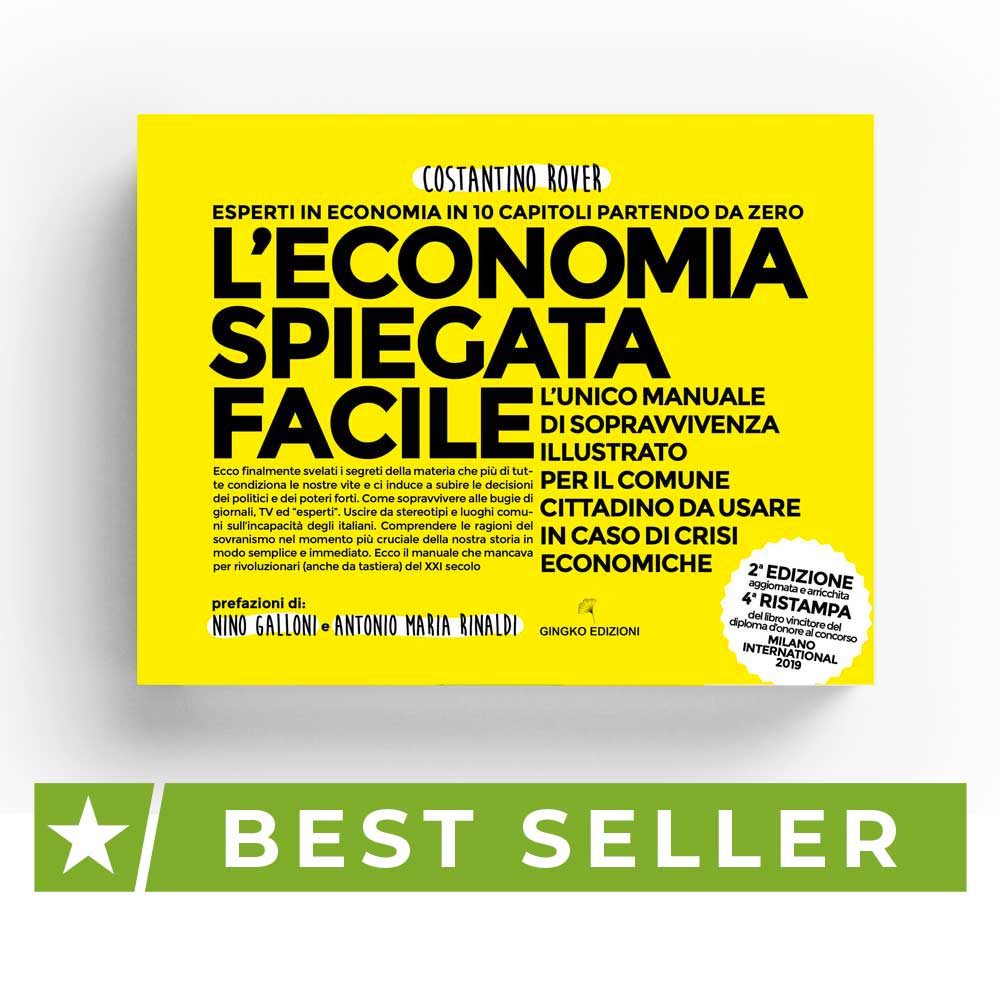
 BUY IT NOW
BUY IT NOW
5 – The unconditional universal income would be an inflationary tool like the ECB's Quantitative Easing was
False QE did not generate inflation. The idea that inflation is created only by printing money is completely obsolete and has been disproved by history. This is an idea of inflation – spread by Milton Friedman through the Chicago Sciola. In reality, QE has rained wealth almost exclusively on the financial markets. It is a false historian and it is even more serious that someone tells it because it is the story we are living in these days.
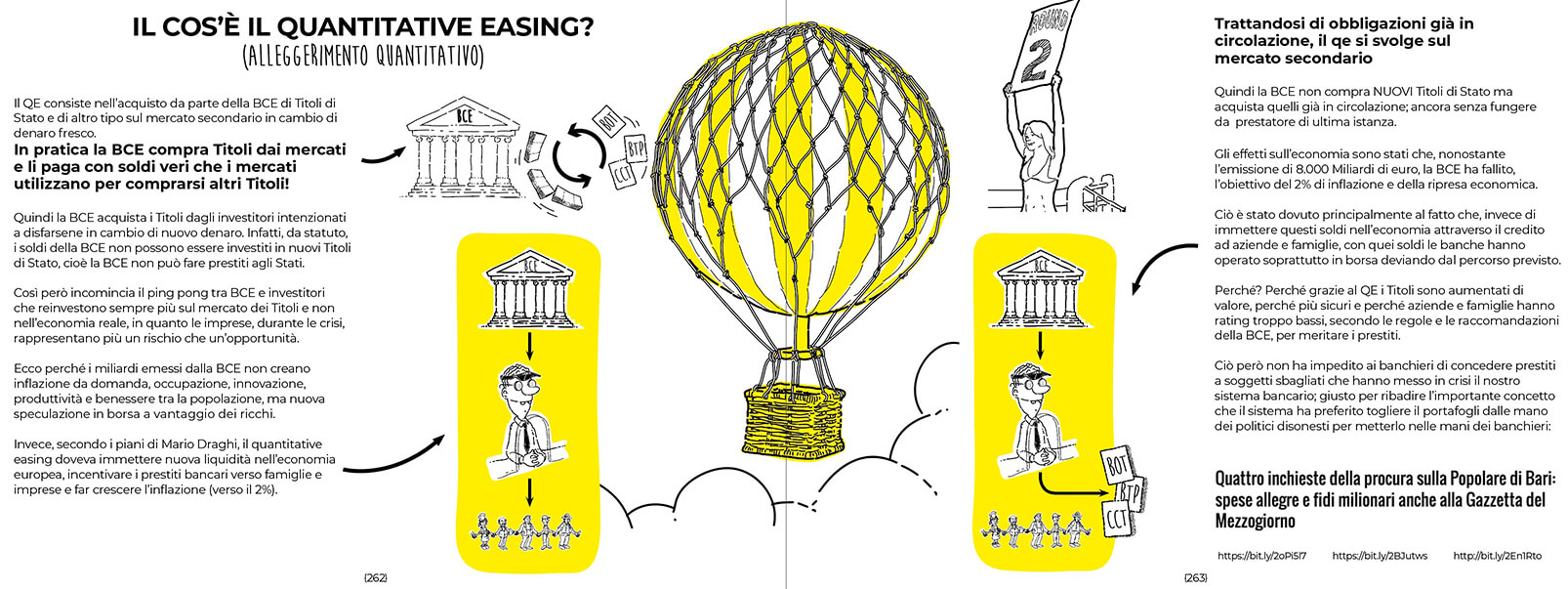
two of the pages that the easy explained economics book dedicates to the explanation of quantitative easing.
CLICK TO ENLARGE
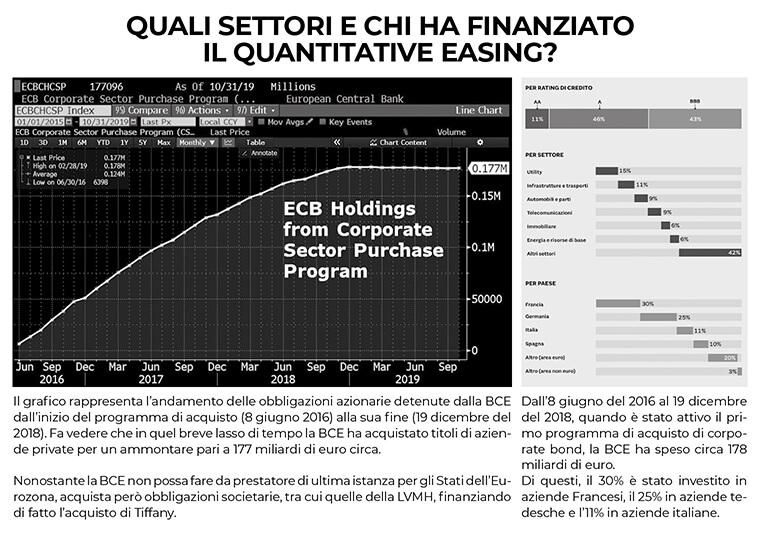
Is Quantitative Easing Inflationary Like Unconditional Universal Income?
Find out in the easy explained economics book
Proof of this is the fact that since 2012 with QE 15,000 billion have been printed without ever making inflation exceed 2%.
Is it possible that in 10 years inflation has never exceeded 2% and that now, after the covid, by a miracle it has reached 8% or over 10% depending on the state?
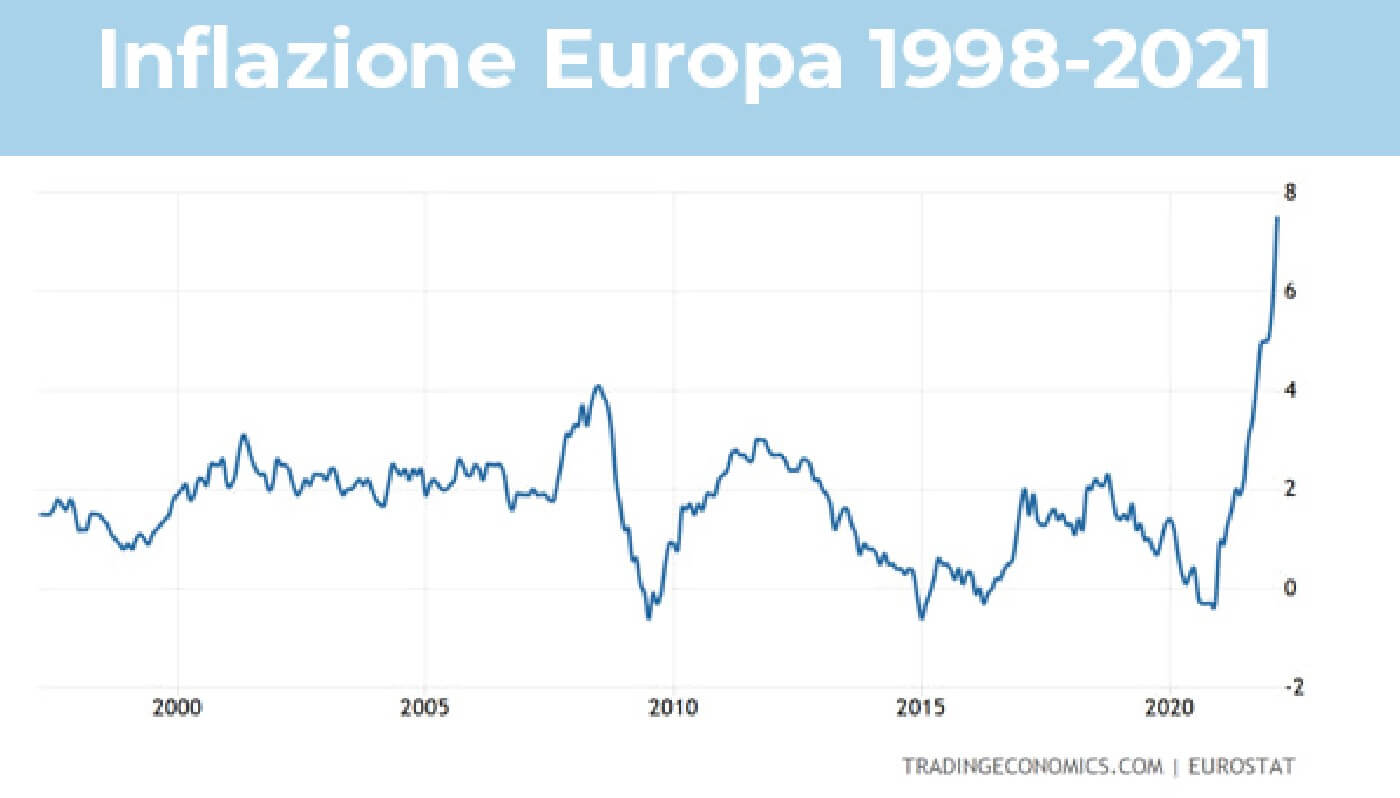
Is the uprising in Sri Lanka due to inflation then the fault of QE? But do you understand that Sri Lanka is in the eurozone?
But above all, if the fault of the inflation is of the QE according to so many experts, how come none of these have ever predicted inflation and if they have been silent until today?
Certainly universal income would become inflationary in the long term (3-5 years), but as a temporary compensatory measure if well managed during the luinga phase of transition towards the completion of the fourth industrial revolution, it can help to keep social balances stable.
According to a study done by the research group I was part of, he had calculated that before inflation could increase significantly, it was necessary to make public investments of at least 500 billion. Probably today the threshold would be higher, but would giving yet another bonus without directing it to job creation and therefore to internal consumption would make sense?
The reasons for inflation are due to the lack of supply and we have explained them in two articles that you find at the bottom of the list of sources. So today it is a question of creating jobs and alleviating the tax burden on companies.
6 – There is not enough work for everyone, universal income brings wealth and independence
while robots steal our jobs
It is also said that the DRC allows us to become better without becoming slaves to work.
Very well, in Sicily we have the bestowal record of the DRC, after three years where are all these altruistic geniuses who create a better world?
It is news a few days ago that tourists are running away for the garbage scattered in the streets. How can this be explained?
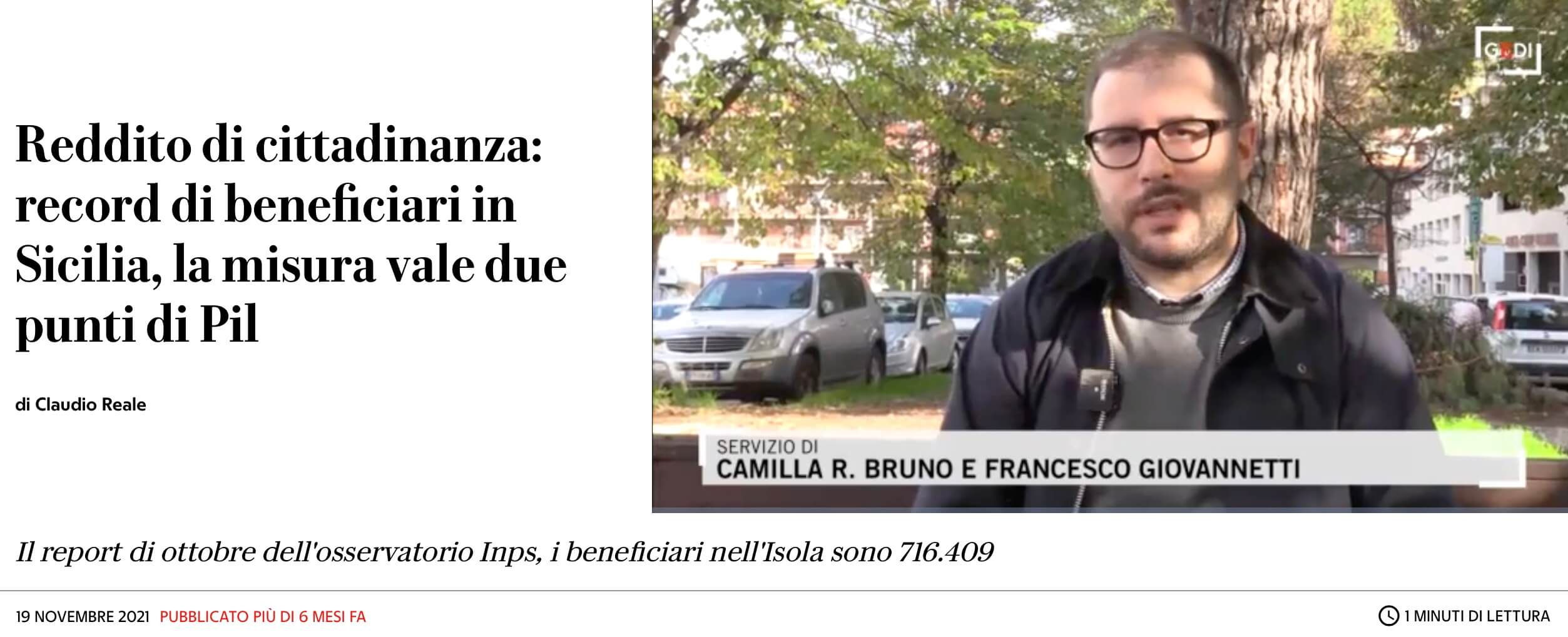

Then here you have to show me that 100% of the recipients in the DRC have set up their own or cooperative business to give back to the company what they have received.
If these subjects had a VAT number or similar, which could be given at no cost and without expenses (just create an ad hoc category), today we could measure this data and above all we could say that the DRC has created work …
Those who say that there is not enough work for everyone have lost the controversy that has been invading the media of every scale and scope for two years, about the fact that entrepreneurs cannot find workers.
This phenomenon does not depend on the presence of the DRC but shows that the work is there.
What are the causes of job loss today?
The problem is that today work is often underpaid, but this is another issue whose causes are to be found in China's entry into the WTO, Italy in the euro and in our consumer habits.
Then our economic decline also depends on demographic decline. All themes that we do not have time to investigate and therefore we will not examine. Is the solution to supplement low wages with unconditional income?
It may be but I doubt it will be a long-term solution, because if the state or the EU gives it, it would mean increasing the public debt. which would increase the tax burden on the few companies that will remain on the market until they close.
If the rich and the corporations will do it, you should explain in the hands of who political power would go, since politics already today has very little importance on the balance of power.
In description some articles that deal with this topic.
• There are 4 major producers of robots in the world: the Italian Comau, the Swiss / Swedish ABB, the Chinese / German Kuka and the Japanese Fanuc.
• The turnover generated by the production of robots of these companies plus others plus others smaller amounts to 10 billion euros.
• radio source 24.
On this point the spectators bring up De Masi out of place.
In fact, De Masi's research concerns the coming decades, not today.
Today, the penetration of industrial robots in individual countries sees China as the first buyer (160,000 units purchased out of 300,000 produced in the world – 392 robots for every 10,000 automotive workers and 24 robots for every 24,000 non-automotive workers).
Automation is destroying jobs in some sectors and creating jobs in others right now.
In the articles of economiaspiegatafacile.it under the menu item SECOLO XXII I deal with the issue of the race of private individuals over the States for the control of power, which today is based on the control of money but which in the future will concern the control of knowledge.
As I said in the last interview, the problem of money is of three types: how you create it, who accepts it and who controls it.
Conclusions
Let us ask ourselves why the EU, which imposes linear cuts in social spending, including healthcare, should unconditionally give us 1,700 euros per month multiplied by 300 million people.
And who puts them there? The rich, that is, those who command?
And how much do you think you are worth to them, € 1,700 per month for life?
Do you believe that your aspirations, your dreams and your personal growth serve any of them?
But do you really believe that the rich or any authority will issue all this mountain of money to make Europeans happy, who are the oldest, least productive and least prospective population on the planet?
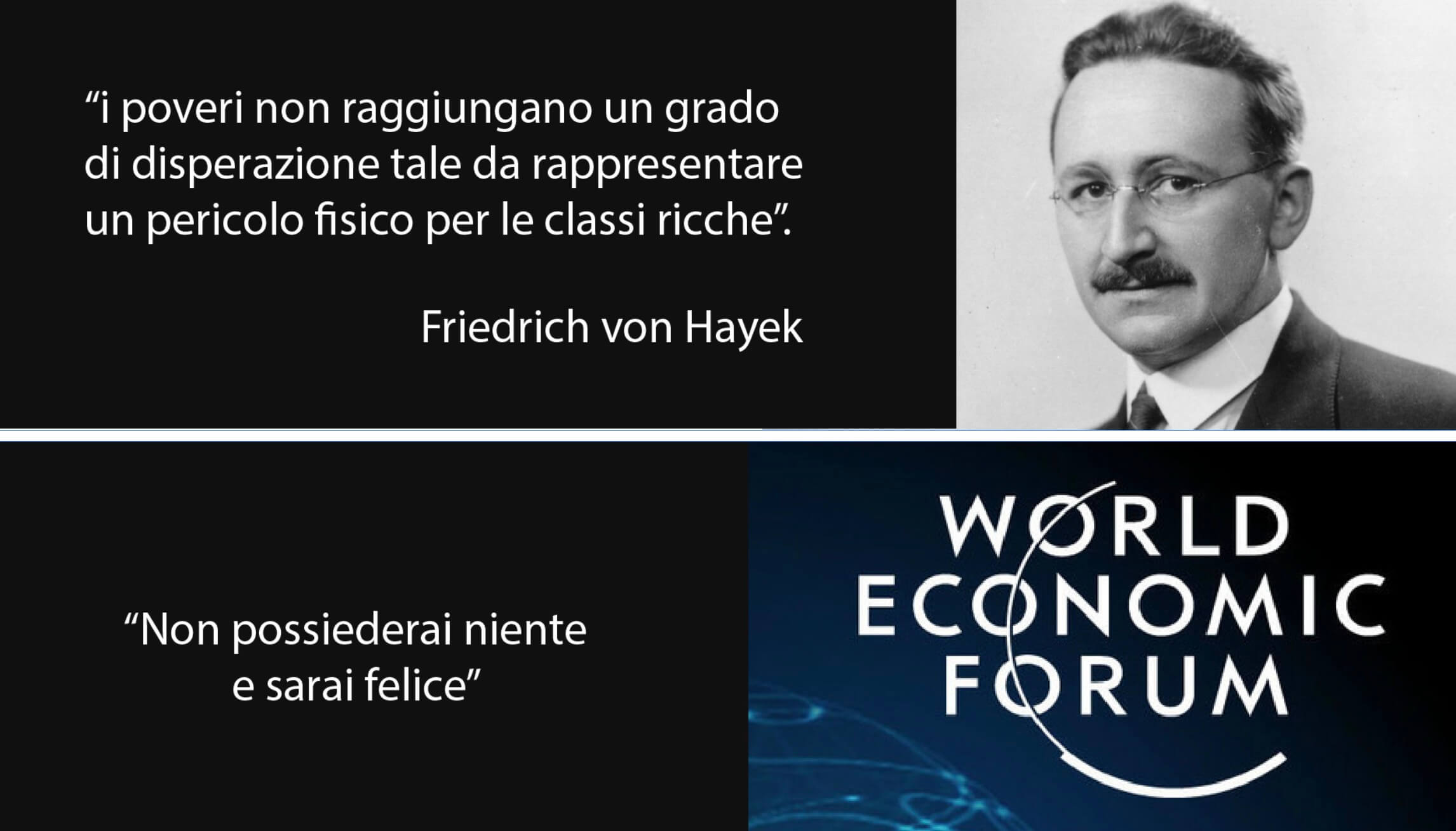
At best, it is a desire to destroy national public health systems to make room for private individuals, since with the monthly check we could pay for medical care.
At worst this "assign" would be a few hundred euros, especially if the rich will steal them.
"Technological revolutions are always a problem for the weaker classes.".
True.
It is up to them to make themselves less weak and the only ladder to climb becomes the intellectual force game.
Robots will generate an increasingly smaller number of unemployed if we are able to proportionally build a future in which work will deviate more and more from the cultural model of the past.
For this scale to become accessible to all, politics should take care of it before lobbies and private interests intervene.
HAVE YOU SEEN HOW EASY IT IS TO KNOW THE ECONOMY?

 BUY IT NOW
BUY IT NOW
SOURCES on the topic of unconditional universal income
EU ready to create unconditional universal income: https://europa.eu/citizens-initiative …
https://www.nicolaporro.it/igianato-f…
Automation creates work:
https://www.ilsole24ore.com/art/indus…
Wall Street Journal: https://www.wsj.com/articles/how-the-…
https://www.kollmorgen.com/it-it/blog…
https://valori.it/a-tokyo-i-robot-div…
https://www.wired.it/igianato/lavoro/…
https://www.agi.it/ economy/automazio ……
https://www.giornaledellepmi.it/rivol…
https://www.kollmorgen.com/it-it/blog…
https://valori.it/a-tokyo-i-robot-div…
Unconditional universal income is a liberal idea: https://www.paolobarnard.info/interve…
There are no free meals: https://economiaspiegatafacile.it/201 …
Salary collapse: https://www.openpolis.it/numeri/lital…
Globalization: http://www.iissdavinci.edu.it/old/qui…
The causes of inflation: https://economiaspiegatafacile.it/202…
https://ivdp.it/carrello-della-spesa-…

Thanks to our Telegram channel you can stay updated on the publication of new articles of Economic Scenarios.
The article The EU is ready to experiment with unconditional universal income. Here are the main critical issues coming from ScenariEconomici.it .
This is a machine translation of a post published on Scenari Economici at the URL https://scenarieconomici.it/reddito-universale-incondizionato/ on Tue, 06 Sep 2022 07:37:52 +0000.
